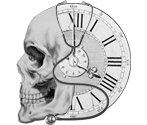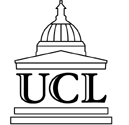Galen: On Diagnosis in Dreams
The vision-in-sleep [enhypnion], in my opinion, indicates a disposition of the body. Someone dreaming a conflagration is troubled by yellow bile, but if he dreams of smoke, or mist, or deep darkness, by black bile. Rainstorm indicates that cold moisture abounds; snow, ice, and hail, cold phlegm.
It is necessary also to pay attention to the stage [kairos] of the disease and to the nourishment that has been taken. If, for example, someone who thinks that he is being covered with snow has this impression at the onset of an attack accompanied by trambling, shivering, or chills, one must assign this for the most part to the stage of the disease, not to the disposition of the body. But someone who has such a dream when the disease is past its crisis will provide us with a firmer indication of the coldness of his prevailing humors, all the more so if he has not eaten any of the phlegmatic foods, which, when they are encompassed in the stomach, make possible the coming-into-being of such an impression, even though the disposition in the whole body is not similar.
But since in sleep the soul does not produce impressions based on dispositions of the body only, but also from the things habitually done by us day by day, and some from what we have thought – and indeed some things are revealed by it in fashion of prophesy (for even this is witnessed by experience) – the diagnosis of the body from the visions-in-sleep that arise from the body becomes difficult.
Now if it were necessary only to distinguish this cause from the things done or thought by day, it would not be at all difficult to conclude that whatever has not been done or thought is arising from the body. But since we concede that there are also prophetic dreams, it is not easy to say how these might be distinguished from the ones arising from the body.
At all events, a man dreamed that one of his legs had turned to stone, and many of those clever about such matters judged that the dream pertained to his slaves, but the man was paralyzed in that leg, although none of us expected that. We established, for example, that the wrestler who seemed to be standing in a receptacle of blood and to keep above it with difficulty had an abundance of blood and was in need of purging. And some who were about to sweat critically seemed to be bathing and swimming in receptacles of hot water. So also the impression of drinking without being filled befalls those who thirst exceedingly, just as also that of eating without fulfillment befalls the famished, and that of making love, those who are full of semen.
For it is likely that in sleep the soul, having gone into the depths of the body and retreated from the external perceptions, perceives the dispositions throughout the body and forms an impression of all that it reaches out to, as though these things were already present. And if this is the case, it would in no way be marvelous, whenever the psychic faculty, weighed down by an excess of humors, is troubled, that those moving themselves with difficulty have that impression in a dream and bear some vexations; or on the other hand, whenever the disposition of the body is light and unsuperfluous, that those who are so disposed have a dream that they are flying or running swiftly, the impressions of the soul always agreeing with the dispositions of the body, even to the point of seeming to smell bad or good odors. For those who have this impression that they are passing time in dung and mire either have their internal humors in bad condition, foul-smelling, and putrid, or they have an excess of dung encompassed in their bowels. One must conclude that those who are disposed in the reverse of this way and seem to be passing time in fragrant places have the opposite disposition in their body.
So what our patients see in their visions-in-sleep and seem to do often indicates to us both the shortage or abundance and the quality of their humors.


